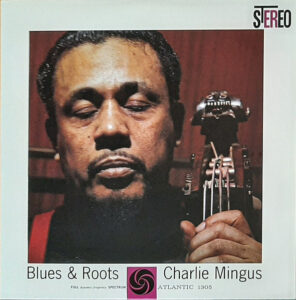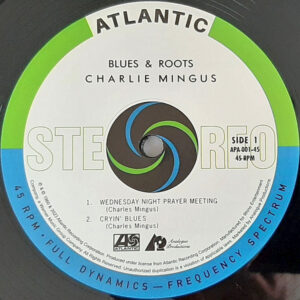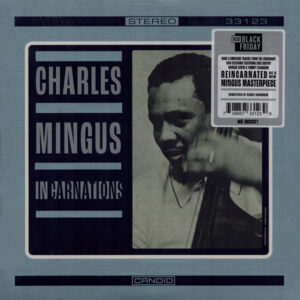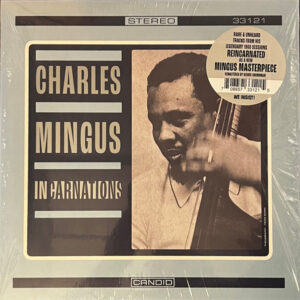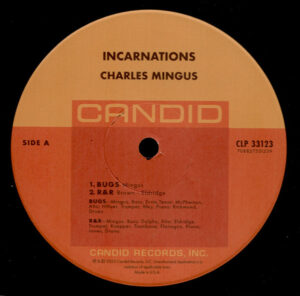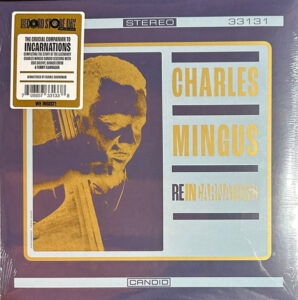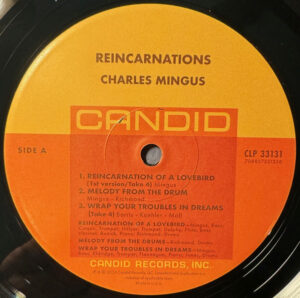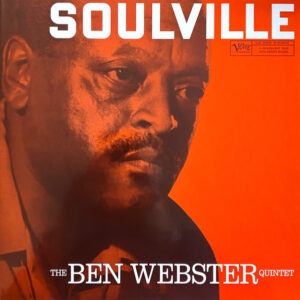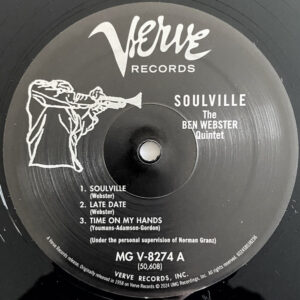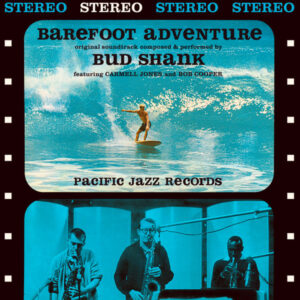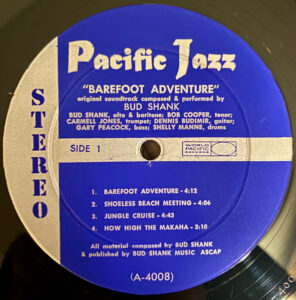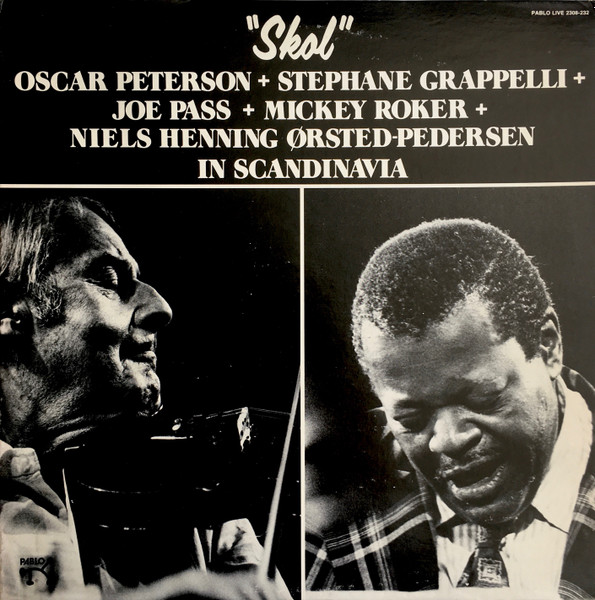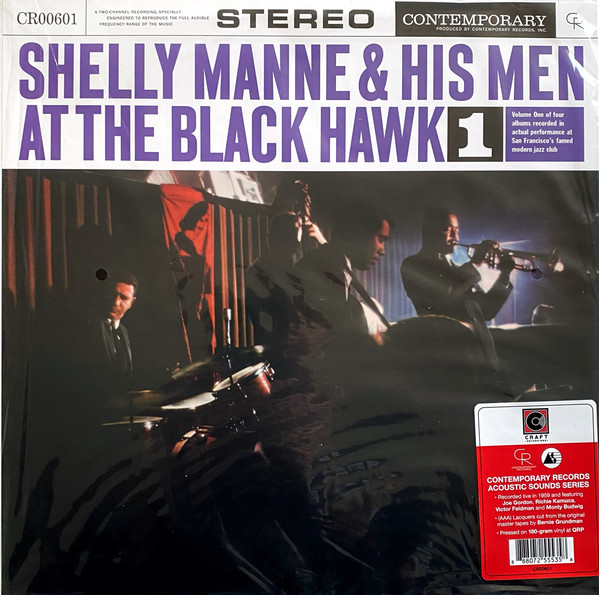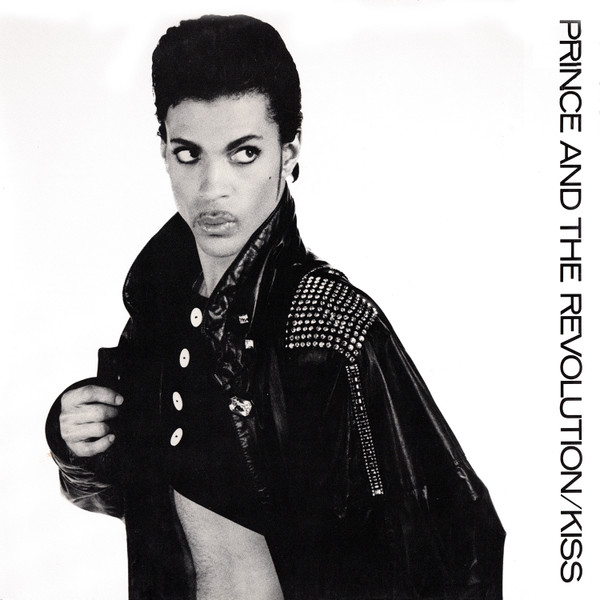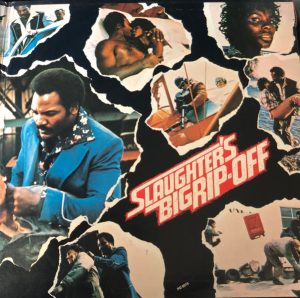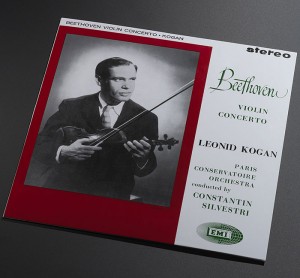This is an ongoing project by Claude Lemaire of Soundevaluations
236. Charlie Mingus, Blues & Roots. Atlantic – SD 1305 (1960), 33 1/3 rpm, Analogue Productions – APA 001-45 (2023), Atlantic 75 Audiophile Series, (2x45 rpm). Genre: experimental big band, avant garde jazz, blues, hardbop, swing.
Here is a great album featuring six tracks including the well known classic—and one of my all-time favorite jazz tracks—"Moanin'", occupying all of side B on this double-45 rpm by Analogue Productions. Going by the catalogue number, I'm guessing it is one of the first releases from the 'Atlantic 75 Audiophile Series' that celebrates the iconic label's 75th anniversary reaching back to 1947. It is an incredible series all cut at 45 rpm by a handful of highly-respected engineers from what is arguably one of the most important record labels in rhythm and blues, soul, and rock, with even some major jazz figures included. After what appears to be about a dozen albums, Blues & Roots dating from March 1960 was Mingus' third release on Atlantic following The Clown (Atlantic 1260 or Analogue Productions APA 060-45) out three years prior. As can be expected from Mingus, the musical gamut is quite large comprising a mixture of experimental big band, avant garde jazz, blues, hardbop, and simple 'old-fashioned' swing. As mentioned, "Moanin'"—not to be confused with Art Blakey's most famous track bearing the same name—is the hard boppiest track of the album, characterized by the main opening baritone-sax riff, which with time, builds up, swells, howls, and climaxes. The sound—solid, powerful, fiery, exciting—is the culmination of many factors including: Mingus' signature compositional mindset, major reed players such as Pepper Adams, Jackie McLean, and John Handy, producer Nesuhi Ertegun, recording engineer Tom Dowd, and remastering and cutting engineer Kevin Gray, who though always admired at what he touches, here even surpasses his usual high level, especially in terms of transparency and boldness. Note that, as was typical for Atlantic's stereo releases in the 1960s, Dowd hard-panned most of the instruments—which I like but bothers some listeners—making them sound very palpable and present. Case in point, Mingus' bass–which has not always been well presented on other labels—has never sounded so natural and articulated; the vibrations of the strings, wood, and note articulation are amazingly realistic. Brass and woodwinds have warmth, tone, and edge. Dynamics and soundstage size in all dimensions are up their with the very best on record! The remaining tracks are worthy of your attention as well. I didn't have an original pressing to compare with but I cannot fathom it being better, let alone equaling it given all of the above care gone into it. Kudos for a Killer release!
237. Charles Mingus, Incarnations. Candid – CAN33123 (2023), 708857331239, RSD version, CAN33121 (2024), 708857331215, 33 1/3 rpm. Genre: bebop, cool jazz, big band, ballads, hard bop, avant garde and third stream leanings.
We continue our Mingus musings with the first of two recent releases originally recorded in October and November 1960 at the Nola Penthouse Studios in New York. Seemingly some of this material remained previously unreleased on vinyl until now. These sessions coincide with those for Charles Mingus Presents Charles Mingus for the lesser-known jazz label Candid, a subsidiary of Cadence Records. Incarnations and Reincarnations (just below) are big band settings comprising up to fourteen musicians, featuring the likes of Eric Dolphy on alto sax and bass clarinet, Jo Jones on drums, Paul Bley and Tommy Flanagan on piano, and Roy Eldridge on trumpet just to name a few. There are five tracks, opening the album with the exciting bebop-flavored "Bugs." Composed by Mingus, it is clearly inspired by Parker and Dizzy's playing style from the mid to late 1940s. Predating Nancy Sinatra's "These Boots Are Made for Walkin'" by a full five years, "R&R" cools things down with Mingus' starting solo in a descending scale; muted trumpet follow on a light swinging spy riff rhythmic melody; leading into Dolphy's intense wailing alto sax. Sounding so real, it's as if he suddenly appears by my side to my right—his playing is so free and fluid, all boundaries disappear! Side two opens with the Hammerstein-Kerr classic "All the Things You Are (All)" with muted trombones followed by beautiful brass in a sophisticated film noiresque Ellington-type arrangement. "Reincarnation of a Lovebird (2nd version)" resembles a bit "Moanin'", and straddles the tempo on a few occasions. Lastly "Body and Soul" is exquisitely interpreted; starting out real dreamy slow; then a sudden tempo change ala New Orleans occurs; a short bass solo; shifting to double time swing; finally downshifting to a slow drag blues. Following with...
238. Charles Mingus, Reincarnations. Candid – CAN33131 (2024), 33 1/3 rpm. Genre: bebop, hard bop, big band, ballads, avant garde and third stream leanings.
As can be expected, Reincarnations is the natural suite to Incarnations, with five tracks comprising two alternate takes: it opens with the '1st version / Take 4' of "Reincarnation of a Lovebird" and ends with 'Take 2' of "Body and Soul." Between these two are three tracks, including what I feel is the highlight on this particular release: "Melody From the Drums," which is perhaps the most realistic and impressive sounding drum solo—played here by Dannie Richmond—I've ever heard on record! Engineer Bob D'Orleans did a great job, recording both sessions "monophonically and stereophonically directly to 2-track and full-track master tapes on Ampex 300 with Neumann U-47, EV 667, and RCA44BX" as well as Bernie Grundman accomplishing one of his best remastering and lacquer cutting contracts I've heard. Tonal balance is evenly presented with great instrument presence, dynamics, and transparency; Mingus' bass is precisely articulated and appropriately-sized; cymbals well defined; Dolphy's flute remains clean, and soundstage is big. Both Candid selections were well pressed—I presume at RTI, though I could not find the info to confirm so.
239. The Ben Webster Quintet, Soulville. Verve Records Clef Series – MG V-8274 (1958), Verve Records, UMe 602458538236, Acoustic Sounds Series, Clef Series (2024) (mono), 33 1/3 rpm. Genre: cool jazz, bluesy ballads.
Soulville seems to be the sole release under the 'Ben Webster Quintet' banner. Don't let the title fool you, this is not a traditional soul jazz type album but rather a superb bluesy ballads jazz release featuring seven soulful tracks. The makeup of the quintet consist of the Oscar Peterson Trio; Peterson on piano, Ray Brown on bass, and Herb Ellis on guitar—plus Stan Levey on drums, with Webster naturally on sax. By 1958, when this album was first released, the tenor's tenure was fast completing his third decade as one of the preeminent saxophone statesmen along with Lester Young—both men early in their career, enjoying stomping stints with Kansas City's Count Basie, and acting as counterweights to the tenor madness of a Coltrane or a Rollins. On Soulville, Webster is at his best, his delivery is smooth, full, passionate, and profound. Which also could apply to the sound of this reissue perfectly executed by Ryan K. Smith at Sterling Sound, and pressed at QRP for Acoustic Sounds' Verve Clef Series. I never heard the original pressing nor the 2013 Analogue Productions (AP-8274) double-45 rpm cut by George Marino—which must be awesome I'm sure—but this 33 1/3 rpm by RKS is astounding in every sense. It was produced by Verve's Norman Granz, and engineered by Val Valentin. Yes it is mono, but a very wide mono, and the tone of the tenor is probably the best sounding sax sound I've ever heard! It is so full, warm, present, and airy that you can hear every nuance emanating from his breath, reed, and keys; it is mind-blowing, and oh so satisfying. The snare brush sweeps are very intimate, while the remaining instruments are captured with warm roundish tones. In one or two short instances, Ellis' guitar does distort, but not to the point of displeasure. The color and B&W gatefold Stoughton 'Tip-On' jacket adds a nice touch to the original pressing which did not unfold. A must in any collection!
240. Bud Shank, Barefoot Adventure. Pacific Jazz – STEREO-35 (1961), Impex Records – IMP-6048 (2023), 33 1/3 rpm. Genre: West Coast jazz, cool jazz, bebop, hard bop, big band, ballads, soundtrack.
By all accounts, saxophonist and flutist Bud Shank was very busy on the jazz scene. A simple glance at his discography, both as a leader and a sideman, confirms the latter. He was plenty prolific for Pacific Jazz as well as World Pacific—over forty albums combined—Barefoot Adventure chosen here surfacing around number twenty-one or so. Best known for the flute and alto sax, he also played tenor and baritone. Though never a household name as Coltrane, Parker, or Getz were, we probably heard as much of his playing in countless Hollywood TV shows and movies as being part of the top gun 'on-call' studio session musicians back in the 1960s. In fact, that famous flute solo from The Mamas & the Papa's 1965 hit "California Dreamin" traces back to him. The front cover featuring the "film strip look" reminds me of the original Hawaii Five-O series. Recorded in November 1961—no engineer is credited—there are four tracks per side, all of which composed by Shank. Accompanying him are Gary Peacock on bass, Shelly Manne on drums, Dennis Budimir on guitar, Bob Cooper on tenor sax, and Carmell Jones on trumpet. Superb performances, not a dull moment from start to finish. In general the Pacific Jazz style and sound approaches that of Roy DuNann for Contemporary, which is predominately West Coast, warm, intimate, direct with just a hint more reverb, and Barefoot is no different. Impex, RTI, and Kevin Gray gave us an incredible all analog remastering and cutting reissue. By far the most impressive Impex release in sound and music ever. Superb glossy gatefold to boot. Demo-worthy so don't miss out!
For more from Claude Lemaire go to his blog...
http://soundevaluations.blogspot.ca/




